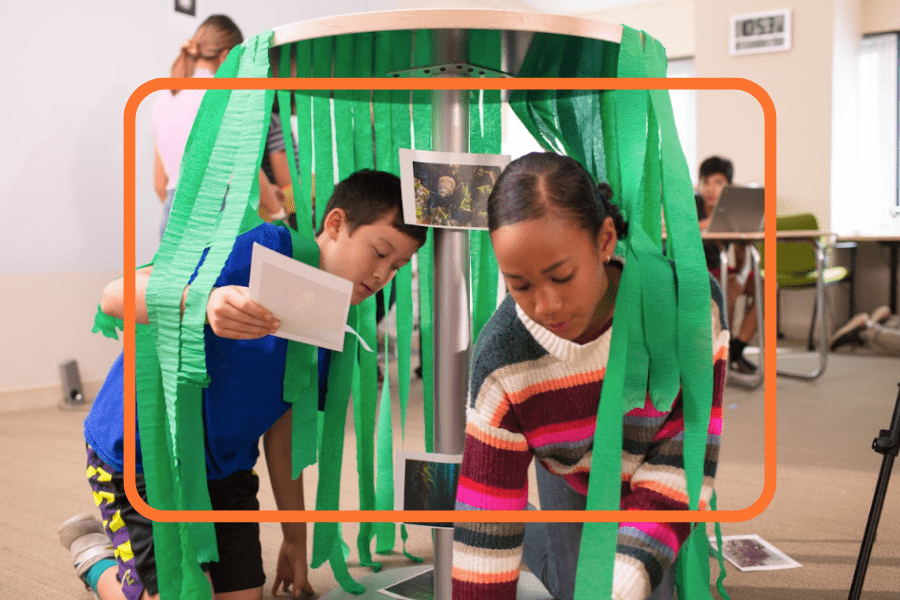
Create classroom rapport from day 1 with TCI’s icebreakers, activities, and strategies for K-12 classrooms. These tools will help you build a cooperative classroom to start the school year right and provide an optimal learning environment for the rest of the year.
Icebreakers and Team Builders
Let your students get to know one another on the first day of school with TCI’s icebreakers and team builders. Working well with others is a skill that will benefit students throughout their lives and support a cooperative learning environment. TCI’s icebreakers and team-building activities include ideas for elementary, middle school, and high school classrooms.
- Meet Someone Who (Elementary School): Provide students with a list or bingo card with different categories (bingo card included in the toolkit). Students should identify a classmate who fits each category. In the process, students will get to learn more about their classmates’ interests and experiences.
- Going Camping (Middle School): In this team-building exercise, students rank a list of things they would take with them on a camping trip. First, students rank the list on their own. Then, have students work in groups to re-rank their list. Finally, share the experts’ ranking with the class.
- My Life Map (High School): In this activity, students can evaluate where they came from, what has helped them to grow, and where they would like to be someday. Provide each student with a copy of the Life Map handout to complete. Then invite students to share or conduct a gallery walk. Consider displaying the completed life maps in the classroom.
Download the complete collection of TCI’s icebreakers and team builders.
Activities for Building Relationships
Relationship building begins on the first day of school, but it should continue throughout the year. Studies show that building strong relationships in school, including with teachers and staff, can increase students’ motivation to learn. Explore these activities for building relationships.
- Interest Cards (Elementary School): Provide each student with an index card to record key information about themselves and decorate as they wish. Ask students to write 4–6 personal details on their card. Consider giving the cards a creative theme, such as sports trading cards. Keep the completed index cards at your teaching station to use in class (for example, to create heterogeneous groups for class activities).
- Pairing Activities (Middle School): Have students get acquainted with one another with the Buddy Clock activity. Have students set up “appointments” with one another. When wanting to pair up, ask students to sit with their _:00 appointment.
- Goal Setting (High School): Work with students to set goals for the school year. To foster empowerment and agency, emphasize realistic personal goals students might wish to achieve. Consider using this to meet with students regularly to monitor their progress.
For more, download TCI’s activities for building relationships.
Strategies for Teaching Cooperative Skills
Cooperation is an action someone takes to be helpful when working toward a common goal. Students may have little prior experience working as a team. Modeling cooperative learning lets students know what cooperative and noncooperative behaviors sound and look like. Provide time at the beginning and throughout the year for students to work cooperatively in short, fun, relational group games reinforcing cooperative skills.
- Cooperative Game Time (Elementary School): Bring board games or create a Pictionary or charades-like game where students play in small groups. Have students look for indicators of cooperative learning in action and give groups points for using the cooperative skills.
- Groupwork Brag Sheet (Middle School): Allow students to hold themselves and their group members accountable for the activities and cooperative skills. Use a groupwork brag sheet where students evaluate others.
- Discuss Current Events (High School): Hold regular class discussions about current events and everyday topics to encourage students to use cooperative skills during discussions. Display a list of cooperative skills as a reminder for students to refer to throughout the discussion.
For more, download TCI’s strategies for teaching cooperative skills.
Ideas for Developing Classroom Norms
Establishing norms can help create an effective classroom environment, providing clear guidelines for appropriate student behavior. Giving students a role in creating classroom norms helps build a classroom community. Explore these steps for developing classroom norms:
- Brainstorm classroom norms. Encourage reflection by posing broad questions to the class: What classroom expectations should we have? In previous years, what has interfered with your learning in class? What norms could we create to prevent these problems? Allow students a few minutes to think independently and then work with a partner to list anything that comes to mind.
- Create a class list. Have pairs share the classroom expectations that they came up with. At this point, allow all suggestions without editing or rephrasing, even if some suggestions are phrased negatively. Students will likely list several disorganized, overly specific rules.
- Categorize the list. Gently tell students that, although the list features many great ideas, it would be impossible to remember them all. Then ask students to look for patterns in the list and group similar items together. Consider using different colors, stickers, or headers to group list items.
- Agree upon the classroom norms. Narrow the list to 3–5 of the most important and comprehensive norms. These norms should be phrased using positive language. Ensure to include enough detail so that each norm is clear, while avoiding overly lengthy statements.
For more, download TCI’s ideas for developing classroom norms.
TCI’s Tools for Building a Cooperative Classroom
Download TCI’s first day of school icebreakers, activities, and strategies.
- Icebreakers and team builders
- Activities for building relationships
- Strategies for teaching cooperative skills
- Ideas for developing classroom norms
For more free resources from TCI, explore our free lessons.


